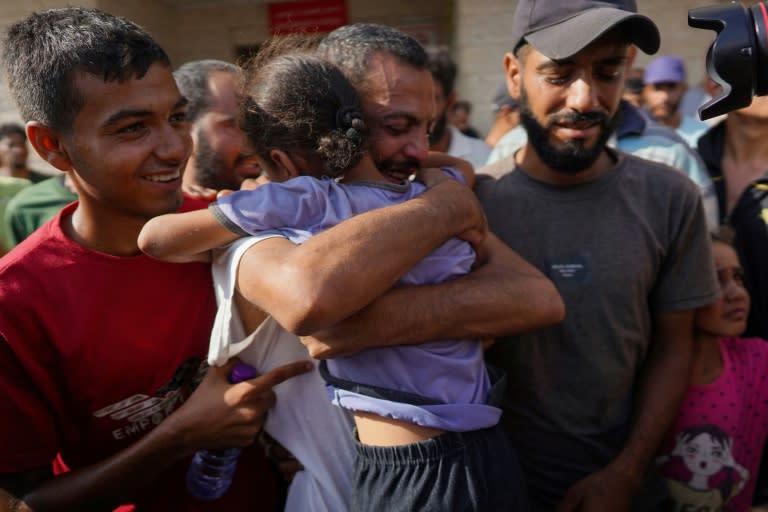Israel PM condemns release of Gaza hospital chief who claimed torture

Israel on Monday freed the head of Gaza's biggest hospital who said he was tortured during seven months in detention, but Prime Minister Benjamin Netanyahu soon after criticised the release as a "serious mistake".
Tensions over the freeing of Al-Shifa hospital director Mohammed Abu Salmiya became public almost as soon as he was sent back to Gaza with dozens of other Palestinians held since the October 7 attacks that sparked the Israel-Hamas war.
The World Health Organisation expressed concern after Abu Salmiya was detained on November 23 with other hospital staff.
Israel's military has accused Hamas of using hospitals, including Al-Shifa, as a cover for military operations, which the militant group denies.
Netanyahu said he had ordered the Shin Bet intelligence agency to conduct an investigation into the release and provide him with the results by Tuesday.
"The release of the director of Shifa Hospital is a serious mistake and a moral failure. The place of this man, under whose responsibility our abductees were murdered and held, is in prison," Netanyahu said in a statement.
The decision was made "without the knowledge of the political echelon," he added.
The agency had said earlier that it had decided on the release with the Israeli military "to free up places in detention centres".
It said it "opposed the release of terrorists" who had taken part in attacks on Israeli civilians "so it was decided to free several Gaza detainees who represent a lesser danger".
National Security Minister Itamar Ben Gvir, a hard right member of Netanyahu's coalition, earlier called Abu Salmiya's release "with dozens of other terrorists" a "security abandonment".
Israeli raids and a weeks-long battle earlier this year have devastated Al-Shifa. Other clinics and medical institutions have also suffered damage, leading to condemnation from UN agencies, NGOs and foreign governments.
Abu Salmiya said he and other prisoners were put through "severe torture" in Israeli prisons during their detention.
"Several inmates died in interrogation centres and were deprived of food and medicine," according to Abu Salmiya, who said his thumb was still broken.
"For two months no prisoner ate more than a loaf of bread a day," he added.
"Detainees were subjected to physical and psychological humiliation."
The medical chief said no charge had ever been made against him.
- Emotional reunions -
After crossing back to Gaza, five detainees were admitted to Al-Aqsa hospital at Deir al-Balah and the others were sent to hospitals in Khan Yunis, a medical source said.
An AFP correspondent at Deir al-Balah saw some detainees in emotional reunions with their families.
Hamas denied that it used hospitals as a shield for its operations. It called in a statement on the United Nations and countries to "stop this massacre" of prisoners in Israeli jails. It called on the International Committee of the Red Cross to "reveal the fate of thousands of Palestinian detainees" in Israel.
Abu Salmiya was not the only top medical practitioner detained.
The Gaza European hospital in Khan Yunis said the head of its orthopaedic unit, Bassam Miqdad, was among those freed on Monday.
In May, Palestinian rights groups said a senior Al-Shifa surgeon had died in an Israeli jail after being detained. The Israeli army said it was unaware of the death.
The war started with Hamas's October 7 attack which resulted in the deaths of 1,195 people, mostly civilians, according to an AFP tally based on Israeli figures.
Israel's retaliatory offensive has killed at least 37,900 people, also mostly civilians, according to data from Gaza's Hamas-run health ministry.
bur-cgo/tw/dcp

 Yahoo News
Yahoo News 
